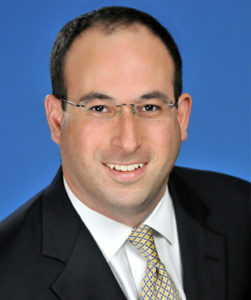
 Frank Cruz-Alvarez is a Partner with Shook, Hardy & Bacon L.L.P. in the firm’s Miami, FL office, and Britta Stamps is an Associate in the firm’s Kansas City, Mo office.
Frank Cruz-Alvarez is a Partner with Shook, Hardy & Bacon L.L.P. in the firm’s Miami, FL office, and Britta Stamps is an Associate in the firm’s Kansas City, Mo office.
In Brady v. AutoZone Stores, the Ninth Circuit succinctly affirmed that class claims are rendered moot when the class representative voluntarily settles his individual claims, absent a clear indication of the class representative’s continued financial interest in the unresolved class claims. The mere resolution of the class representative’s individual claims does not automatically moot the class claims. Rather, the court must look to the terms of the settlement agreement between the class representative and the defendant to determine whether any ongoing financial interest on behalf of the class representative remains.
Looking into the case at hand, the Ninth Circuit noted that class representative Michael Brady settled his individual claims with AutoZone after the district court denied his motion for class certification. In addition to settling his individual claims, the settlement agreement explicitly resolved the class representative’s “claims to costs or attorney’s fees” and noted that the agreement was “not intended to settle or resolve Brady’s class claims.” The settlement agreement did not include any provision entitling the class representative to any financial reward for the success of any unresolved class claims. After the district court entered final judgment, the class certification issue was appealed.
To determine whether the appeal was moot, the Ninth Circuit pointed to Campion v. Old Republic Prot. Co., which provides, “[t]he test for whether an appeal is moot after the putative class representative voluntarily settles his individual claims is whether the class representative retains a personal stake in the case.” 775 F.3d 1144, 1146 (9th Cir. 2014). But what constitutes a “personal stake” in a putative class action has been the subject of much debate in Ninth Circuit cases.
In its consideration of whether such a personal stake exists in this case, the Court relied on its precedent in similar cases. Where the language of a settlement agreement provided that the class representative would receive an “award enhancement fee” if a class were certified, and noted that the class representative did not release claims for attorney’s fees and costs, the Ninth Circuit has held that the class representative maintained “a continued financial interest in the advancement of the class claims.” Narouz v. Charter Communications, LLC, 591 F.3d 1261, 1263-64 (9th Cir. 2010). That settlement agreement did not moot the unresolved class claims. Id. Likewise, where a class representative accepted a Rule 68 offer of judgment that settled her individual class claims, but was silent regarding the class claims, the Ninth Circuit held that those claims were not moot. Evon v. Law Offices of Sidney Mickell, 688 F.3d 1015, 1021 (9th Cir. 2012).
But where a class representative settled his individual claims via a settlement agreement that explicitly did not resolve the class claims, the Ninth Circuit held the class claims were in fact moot. Campion, 775 F.3d at 1145-47. While the different holdings might appear contradictory at first glance, the details of the settlement agreements at issue explain the reasoning and offer insight for parties seeking to settle such claims. Indeed, the court explicitly stated that the question of whether a personal stake is both concrete and financial “turns on the language of [the] settlement agreement.” Evon, 688 F.3d at 1021. So, because the Campion class representative’s settlement agreement did not provide additional compensation for resolution of the class claims, the case was moot. 775 F.3d at 1147.
In the Brady case, then, the absence of any financial interest by the class representative after he resolved his individual claims mooted his case. The settlement agreement lacked any indication that the class representative could receive an enhancement award. And the class representative’s argument—without supporting documentation—that he was liable to his attorneys for litigation costs was likewise unavailing: “Absent proof that Brady is legally obligated to pay the advanced legal costs unless the class is certified, those costs do not provide Brady a financial stake in the outcome of the class claims.”
The Ninth Circuit concluded the opinion with guidance for the settlement of a class representative’s individual claims. In order to maintain a viable case, the class representative “must do more than expressly leave class claims unresolved to avoid mootness.” The class representative’s settlement agreement must make clear that the class representative retains a financial stake in the unresolved class claims. Class claims become moot in the absence of that financial stake. Parties wishing to settle a class representative’s individual claims should take care to detail whether the class representative is eligible for a fee-enhancement award, an incentive award, a higher attorney’s fee award, or any other compensation or liability that could constitute a continued financial interest in the litigation.
